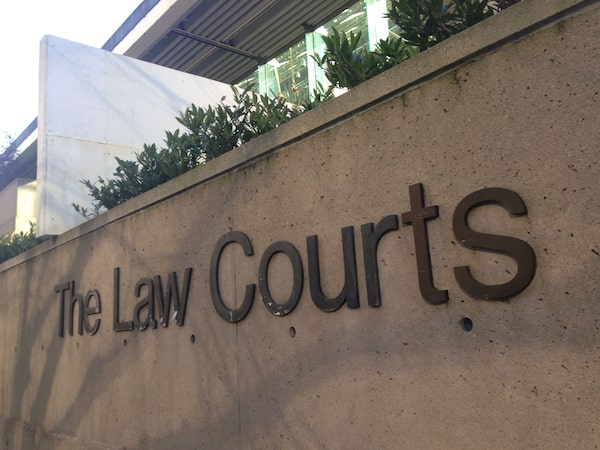
The Vancouver Law Courts in Vancouver on Jan. 29, 2019.DON MACKINNON/AFP/Getty Images
Custodial sentences for Indigenous offenders convicted of crimes that bring penalties of less than two years in prison should be recommended only as a last resort, a new directive for B.C. prosecutors says.
The policy announced on Friday is part of an effort to reduce the over-representation of Indigenous people in the province’s justice system, according to a statement from the B.C. Prosecution Service.
“If the principles of sentencing, including the protection of the public, could be adequately addressed by a non-custodial sentence, Crown counsel should seek a non-custodial sentence,” a new section of the Crown Counsel Policy Manual says.
“Even for offenders who have previously received custodial sentences, imprisonment should be seen as a sanction of last resort.”
The policy says prosecutors must consider asking judges for a community-based sentence if the offence would bring a penalty of less than two years unless the offender poses a danger to the victim or if the law does not allow a community-based sentence for a conviction for the crime.
Other new policies released on Friday urge prosecutors to consider alternatives to prosecution, and to recommend an accused be denied bail only when absolutely necessary.
The changes build on the prosecution service’s 2017 commitment to develop a new approach to handling cases involving Indigenous people.
“Acting alone, Crown counsel cannot eliminate systemic discrimination or the unacceptable over-representation of Indigenous persons in the criminal justice system,” Peter Juk, assistant deputy attorney-general and head of the B.C. Prosecution Service, said in a statement announcing the new policies.
“But Crown counsel play a critical role and must be part of the solution.”
Mr. Juk said by working with Indigenous people and partners in the justice system it should be possible to keep communities safe while making the criminal justice system fairer.
Patricia Barkaskas, academic director of the Indigenous Community Legal Clinic in the Downtown Eastside of Vancouver, said all measures that can be taken to mitigate against the over-incarceration of Indigenous people are a step in the right direction.
“Let’s start there by applauding the fact that these steps are being taken,” said Ms. Barkaskas, a Métis from Alberta and a lawyer.
She said some of the changes restate principles behind such measures as Gladue reports, which were implemented as a result of a 1999 Supreme Court of Canada decision, and inform sentencing judges about Indigenous offenders’ personal and community histories and the circumstances that brought them before the court.
“But to put it into policy as a practice and as a policy that then defense council can also turn to I think is significant, is important.”
However, she said policy must be supported by the courts.
Doug White, chair of the B.C. First Nations Justice Council, said the council applauds the changes.
“Today’s announcement by the B.C. Prosecution Service of new policy, particularly the sentencing policy, will reshape and clarify how prosecutors in the province should be exercising their significant discretion in these matters,” Mr. White said in a statement.
Despite federal efforts with amendments to the Criminal Code, Mr. White said, incarceration rates and over-representation of Indigenous people have skyrocketed.
A spokesperson said the B.C. Assembly of First Nations declined to comment on the announcement.
Other points announced on Friday revise existing policies, including encouraging Crown counsel to consider all reasonable alternatives to prosecution.
The new policies also tell prosecutors to show “principled restraint” in all decisions regarding bail and bail proceedings, with particular attention to the circumstances of Indigenous accused.
Crown counsel should also seek detention only if an Indigenous accused has a history of failing to attend court, the alleged offence is one of violence or bodily harm, or when release on bail might endanger a victim, witness or the public.
We have a weekly Western Canada newsletter written by our B.C. and Alberta bureau chiefs, providing a comprehensive package of the news you need to know about the region and its place in the issues facing Canada. Sign up today.